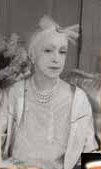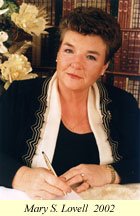"Did you know Louis the Fifteenth?"
Also in today's blog
Chips : The Diaries of Sir Henry Channon
Lady Mendl a k a Elsie de Wolfe
Best potted bio and photos of E de W
Wrathful comment from Celia Brayfield
New book magazine
[I've decided not to risk posting this blog en route. Seems a better idea to do it at crack of dawn on the morning of our departure i.e. on Friday rather than Sunday]
This week I said a regretful farewell to the books which live in our winter quarters and are now out of reach until next winter. Dipping into one of them, I re-read an amusing anecdote.

The book was Chips : The Diaries of Sir Henry Channon edited by Robert Rhodes James and published by Weidenfeld and Nicholson in 1967. I bought it secondhand for £6. The previous owner's signature, M. Corry, is on the flyleaf and he or she pasted several press clippings inside the back cover about Chips Channon's son Paul who, in 1959, succeeded his father as a Conservative Member of Parliament.
Chips Channon's diary entry for 15 July 1950, written at Kelvedon, his country house, was
"Spent the weekend resting and re-charging the batteries among the roses at Kelvedon, and thinking of poor Elsie Mendl who died at Versailles on Tuesday, aged God knows what…I should guess about 97 or 98. She was a kind, good friend to me since 1917, and she was older than the Himalayas then. Elegant, gentle, with a shrieking voice, and high enthusiasms, she was a completely 18th century character. She invented fashionable interior decorating, and exotic entertaining…I took my Paul to dine there two years ago and explained en route how aged and famous she was. He was bewildered, and fuddled by an unaccustomed glass of champagne, asked her if she had known Louis XV! Cleanliness was Elsie Mendl's mania and she had colonic irrigation every day, and used to stand on her head until she was past eighty."

In 1948 Paul Channon was a schoolboy of 13. I wonder why his father didn't record Lady Mendl's reaction to his teenage gaffe? Maybe he did but it was edited out. In Robert Rhode James's introduction to the diaries, he writes
"He stipulated that the diaries were not to be examined until fifty years after his death and that they should be left to the British Museum. But as this was contrary to the regulation whereby the Trustees accept papers and as, shortly before he died, he had expressed his intention to start editing the diaries himself with a view to publication, his son, Mr Paul Channon MP, after consultation, came to the conclusion that it would be possible to publish an edited version at this stage. The task of selection and editing was entrusted to me."
Re-reading the diary fragment made me curious to find out if Chips Channon was now a forgotten man or had an online presence.
At Amazon UK I found that the diaries had been republished as a paperback in 1999. At another site I read
"Sir Henry 'Chips' Channon's extraordinary diaries, first published in 1967, are now considered a modern classic.The years covered in this volume,1934-53, recall a vanished world where Channon's privileged orbit circled every social and public figure of the day in a round of parties, balls, country-house weekends and endless gossip.His position as an MP enabled him to chronicle, famously, the Abdication Crisis, when King Edward VIII's love for 'jolly, plain, unprepossessing' Mrs Simpson reduced him to 'a broken man at bay'. Culled from some three million words in the original, Robert Rhodes James's selection gives us the moments and characters of history, etched indelibly by a master observer."
Lady Mendl a k a Elsie de Wolfe
She was born in New York in 1865 and died at Versailles, France, in 1950.
At Canadian Interior Design I read
"Elsie De Wolfe achieved what most women of her time could not even fathom. She became a living legend of the fashionable life. A trendsetter, a tastemaker, an inventor, and even a revolutionary; that was Elsie. Her influences in style, elegance, practicality and the art of living remain an important influence even in the contemporary society of 2001.
“I was an ugly child and I lived in an ugly age,” wrote Elsie De Wolfe in her memoirs. “From the moment I was conscious of ugliness and it’s relation to myself and my surroundings, my one preoccupation was to find my way out of it. In my escape, I came to the meaning of beauty.”
Elsie De Wolfe has been described as the first lady of interior decoration. She was without question the first woman to create an occupation as designer where none had existed before, and in her quest to be admitted to the highest ranks of society she introduced some of the most stylish and tasteful ideas into the American home than had ever been seen."
I'm not sure how many of you will remember Cary Grant [1904-1986], a huge Hollywood star in his day and said to have been the model for Ian Fleming's James Bond.

In Chapter Six of his memoirs, I read
"Lady Elsie Mendl, a dear nonagenarian, toward whom I gravitated for amusing conversation and relaxed relief at many a dreary dinner party, often adjured that one should “never explain, never complain.”
One afternoon, when she was 91 years old, I carried her in my arms down a narrow winding back stairway in a wing of her exquisite villa in Versailles and, not being able to see, but only gingerly feel the steps beneath my feet, I was troubled for my precious cargo’s safety. Yet Elsie chattered unconcernedly and gaily about her plans for redecorating and entertaining and living. That was about a year or so before her death. Any words of philosophy from such a woman are worth consideration. So nowadays I accept the consequence, whether reward or penalty, or whatever I say, write, or do, and “never complain, never explain.” "
It sounds as if, rather than lowering her age, as many women used to, Elsie de W raised it. Not only did he get her age wrong, but Chips made no reference [at least in the published diaries] to the fact that she had a long-standing menage à trois with two other lesbians and married Sir Charles Mendl for his title.
Best potted bio and photos of E de W
These are at the website of Matt and Andrej Koymasky on whose home page there is a notice that they welcome people of legal age and open to gay content. They write
"Although interior decorating is now widely considered--indeed, stereotyped--as a career for gay men, an American lesbian was, in fact, to a great extent responsible for the creation of this profession. Not only did Elsie de Wolfe spearhead a cultural movement of home aesthetics, she was also one of the central figures of an elite New York "Amazon enclave" that included some of the most glamorous figures of the Broadway stage during the early years of the twentieth century."
I see that Amazon US has a copy of Elsie de Wolfe's memoir After All, published in 1935, for sale for $300.
Wrathful comment from Celia Brayfield
Like print columnists, bloggers like receiving feedback.. Last Sunday two comments dropped into my inbox.
Praise from Margaret McDonagh who wrote, "I was very interested in your piece on Mary S Lovell. I read her biography of Jane Digby a year or so ago and it was fascinating, very accessible. I have A Rage To Live on my TBR pile. It was good to hear more about Mary Lovell, thank you. Best wishes, Mags"
Blame from Celia Brayfield, author of Bestseller : Secrets of Successful Writing, a useful book I've had on my shelves since it was published by Fourth Estate in 1996. [ For a reason known only to my mail forwarding service, Ms Brayfield's comment had been in transit since the previous Sunday.]

She wrote, "Dear Anne I was shocked at the tone of your response to Fay Weldon's appointment as Professor of Creative Writing at Brunel University. You write as if teaching couldn't possibly be a positive choice. I'm one of the many writers who have benefited from Fay's generous and incisive guidance and as such I'm delighted that she can at last be rewarded with a salary for something she's formerly done brilliantly but only for love.
I'm also a creative writing tutor at Brunel where it has been a privilege to sit in on her workshops and witness her magic touch with young writers. Most authors who teach find it an inspiring experience that informs their own work wonderfully. If teaching creative writing was good enough for E Annie Proulx in the US, then why shouldn't it be good enough for Fay Weldon in the UK? And why sneer at 'half-educated' British students'? They're only victims of our half-effective school system; I find the idea of denying them the love of good writing on that account is downright obscene. "
Ms Brayfield's first novel Pearls [1988] sold a million copies worldwide and her next two were top-ten bestsellers in the UK. But now, thanks to cataclysmic changes in the publishing "industry" in the past 15 years, Celia Brayfield and Fay Weldon find it necessary to teach "creative writing" rather than concentrating on their own books.
Some writers do this because they are what another bestselling author has called "natural show-offs". They are in good company. Charles Dickens was an unashamed self-promoter. Other writers do it to supplement their earnings which, in many cases, have dropped alarmingly in recent years.
Celia Brayfield regards my view of creative writing courses as obscene i.e. "offensive or outrageous to accepted standards of decency". I consider it reprehensible for authors of the standing of Weldon and Brayfield to encourage naïve youngsters to think writing is a valid career option.
When I was young it was. Not any more. What the young need is strong discouragement which acts as a filter, deterring the no-hopers but having no effect on the born writers.
On Tuesday Ms Brayfield had an amusing piece in The Times headed - "Why it's curtains for the Labour era : Perhaps No 10 does need a facelift — but let’s have substance before style, please".
Extract - "In Downing Street, the work of William Kent and Sir John Soane is betrayed by pompous, swagged curtains and chandeliers in the Cabinet room that look as if they were bought on eBay from a Worker’s Palace in the former Soviet Union."
New book magazine

At the invitation of its editor Christine Kidney [see photo], this week I went to The Book Magazine which describes itself as "a new quarterly national consumer magazine about books." Launched on on 5th March, it "will be full of reviews, interviews and features about the books you will want to buy. Each issue will provide the reader with a wealth of entertaining and informative articles often written by your favourite authors. The Book Magazine – good writing about good writing."
While at the magazine's site, I read, "To coincide with our article about The Greatest Living British Writer we are conducting a vote to see who the general public think is the greatest. Voting closes on 30 April 2006. One of the winning votes will be drawn and the winner will receive a copy of The Times Comprehensive Atlas of the World. The following list is not a shortlist but a starting point. Please see below the list how you can make your own nomination."
I'll reveal who I nominated next time. I hope to be at my summer desk in time to blog on Sunday 7th May.





